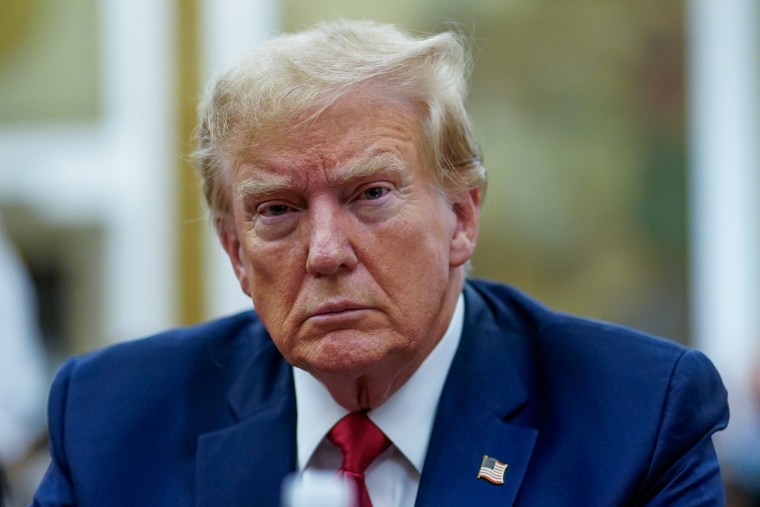Former President Donald Trump is ineligible to appear on Colorado's primary ballot next year based on constitutional grounds, the state Supreme Court ruled Tuesday.
The judges wrote that Trump can't appear on the ballot because of Section 3 of the 14th Amendment of the Constitution.
“A majority of the court holds that President Trump is disqualified from holding the office of President under Section Three of the Fourteenth Amendment of the United States Constitution,” the ruling said. “Because he is disqualified, it would be a wrongful act under the Election Code for the Colorado Secretary of State to list him as a candidate on the presidential primary ballot.”
What does Section 3 of the 14th Amendment say?
Section 3 of the Civil War-era 14th Amendment says: “No person shall ... hold any office, civil or military, under the United States ... who, having previously taken an oath ... as an officer of the United States ... to support the Constitution of the United States, shall have engaged in insurrection or rebellion against the same, or given aid or comfort to the enemies thereof.”
Even if someone is found to be ineligible to serve, the amendment says Congress can overturn that decision with a two-thirds majority.
The provision was mainly used between its ratification in the aftermath of the Civil War and the 1872 enactment of the Amnesty Act, according to a Congressional Research Service report.
How did the case come about?
In early September, several law firms and Citizens for Responsibility and Ethics in Washington, or CREW, filed a lawsuit on behalf of six voters in Colorado requesting that Trump be barred from the state’s 2024 election ballots because of his role in the insurrection on Jan. 6, 2021. CREW noted that Section 3 of the 14th Amendment has “not been tested often in the last 150 years, due to lack of insurrections.”
CREW said, however, that it represented New Mexico residents last year who sued to remove Cowboys for Trump co-founder Couy Griffin from his elected position as Otero County commissioner, which was “the only successful case to be brought under Section 3 since 1869.”
Was Trump charged with insurrection?
The former president has not been charged explicitly with “insurrection” or “rebellion” in any of his criminal cases, including the Washington, D.C., election interference case brought by special counsel Jack Smith. Smith's office charged Trump with conspiracy to defraud the U.S., conspiracy to obstruct an official proceeding, obstruction of and attempt to obstruct an official proceeding, and conspiracy against rights. The case is scheduled to go to trial in early March.
The CRS report says, "Section 3 of the Fourteenth Amendment does not expressly require a criminal conviction, and historically, one was not necessary."
What happened before the state Supreme Court's ruling?
The Colorado Supreme Court decision reversed a lower court’s ruling that said Trump had engaged in insurrection by inciting a riot on Jan. 6, 2021, but that presidents are not subject to Section 3 of the 14th Amendment because they are not an “officer of the United States.”
There's been some debate over whether the president is not covered by Section 3 because it doesn't explicitly mention the president. But the CRS report says that "it may be more likely that the office of the President is included as an office under the United States" and that the history of Section 3's drafting suggests that the president is covered.
What happens next?
Colorado's Supreme Court put its decision on hold until Jan. 4 to allow for further appeals. It also said that if the matter is pursued before the U.S. Supreme Court before that date, the pause will remain in effect during that time and Colorado will be required to include Trump’s name on the primary ballot pending action by the Supreme Court.
If the ruling stands, the Colorado Republican Party indicated Tuesday night that it would withdraw from the primary system as a party and use the caucus system to elect a candidate.
Are there challenges in other states?
The only successful challenge so far has been in Colorado, but there have been similar efforts made in over a dozen states, including New Hampshire, Arizona, Michigan and Florida.
Of the cases that are pending appeal or have been dismissed, most were decided on grounds having nothing to do with Section 3 itself, much less whether Trump participated in or supported an insurrection.
Instead, several courts have dismissed these cases on threshold questions of justiciability, meaning the cases are not eligible to be decided.

